Article: All About Our Leather
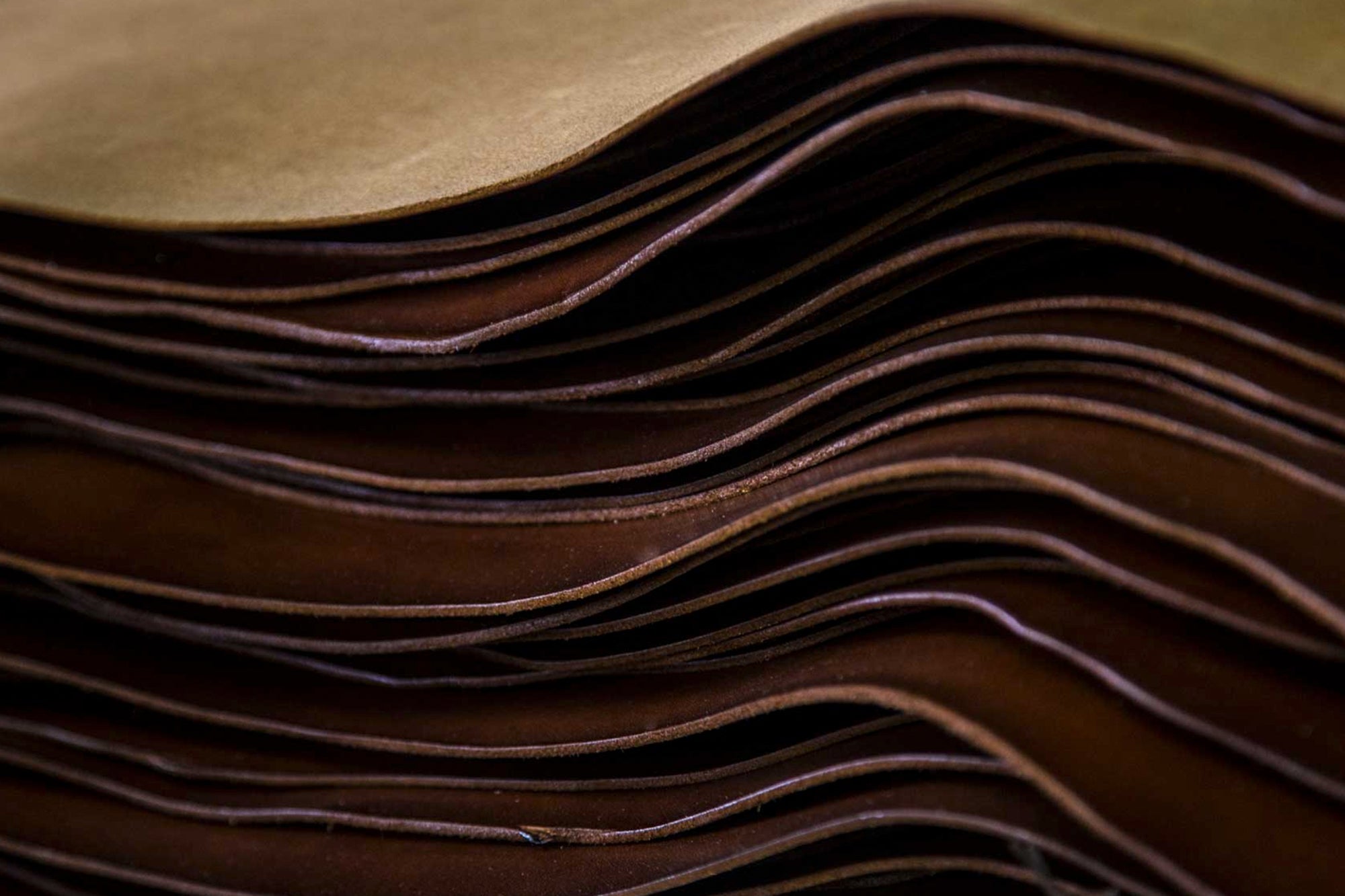
All About Our Leather
Sourced in Tuscany and handmade in London, Wingback leather products are designed to only get better with age. Find out how, below.
![]()
THE FIBRE OF OUR FABRIC
We use full grain, vegetable-tanned, environmentally-certified Tuscan leather. The gold standard, it is firm and rugged, and displays natural markings that hint at stories of a past life.
From tannery to workshop, here’s everything you need to know about our leather.

THE GOLD STANDARD
Our full grain leather is sourced from our partner tannery in the Italian town of Santa Croce sull'Arno near Florence, a private family-run company since 1955 that is certified by the Leather Working Group. Every hide is a byproduct of the meat industry and extra measures are taken to ensure wastage is minimised.
Tuscan leather is the gold standard. It’s the best. Central Italy's enviable climate creates quality hides that age beautifully, yet slowly, without ever losing their shape, meaning your Wingback will gradually mature as you do.

VEGETABLE TANNED
We use a process called vegetable tanning using extract from the quebracho tree to create different shades, such as our classic Chestnut and bold Chilli colours. Unlike chrome tanning, which often leaves a synthetic appearance, vegetable tanning harnesses the tannic acids naturally found in barks, branches and leaves.
It takes skilled tanners around two months to finish the leather using this technique but it’s kinder on the environment and results in a beautiful, natural colour and finish that’s well worth the wait.

PUT TO THE TEST
Once vegetable tanned, the leather is sealed to protect it and left unlined to maintain the minimal raw look and feel of the material. When it arrives in our London workshop, we put it to the test. First, we visually inspect each hide for markings and subtle imperfections.
Next we use our noses. The smell should be rich and natural, like when you walk into a quality Italian shoe shop. A hint of a chemical smell means the leather has likely been chrome tanned or is synthetic. We’ll then work a small sample of the leather to make sure it creases but doesn’t crack.

STAND THE HEAT
For our final test we use fire. High quality leather will burn but should be difficult to set alight. It should deform slightly but not retract and warp like burning plastic. A coloured flame indicates traces of chemicals.
The final tell comes when extinguishing the flame. Chemically tanned leather will give your nose a shock but quality vegetable tanned leather will smell like a good steak sizzling on the griddle pan.

FINISHING TOUCHES
Once the hide is marked, cut, bevelled and burnished, 87 stitch holes are made for each wallet using our laser cutter for unrivalled precision.
Heat generated from the 0.1mm beam seals the leather for a sharp finish and we use the same method to etch the highly detailed graphics and letters onto the front, inside fold and reverse of each wallet.

WELL WORN
Once in your hand, our wallets take on a life of their own. The leather might be firm and rugged, but like a decent pair of shoes, it needs to be broken in first, so expect to see the leather naturally soften and conform to hold its contents snugly.
Over time every Wingback wallet will develop its own unique patina, collecting markings as trophies of the journeys you have shared together.
You can shop the full Wingback Leather Collection here.
Further reading: Discover how we designed our best seller, the Wingback Cash Wallet.
Further reading: Discover how we designed our best seller, the Wingback Cash Wallet.

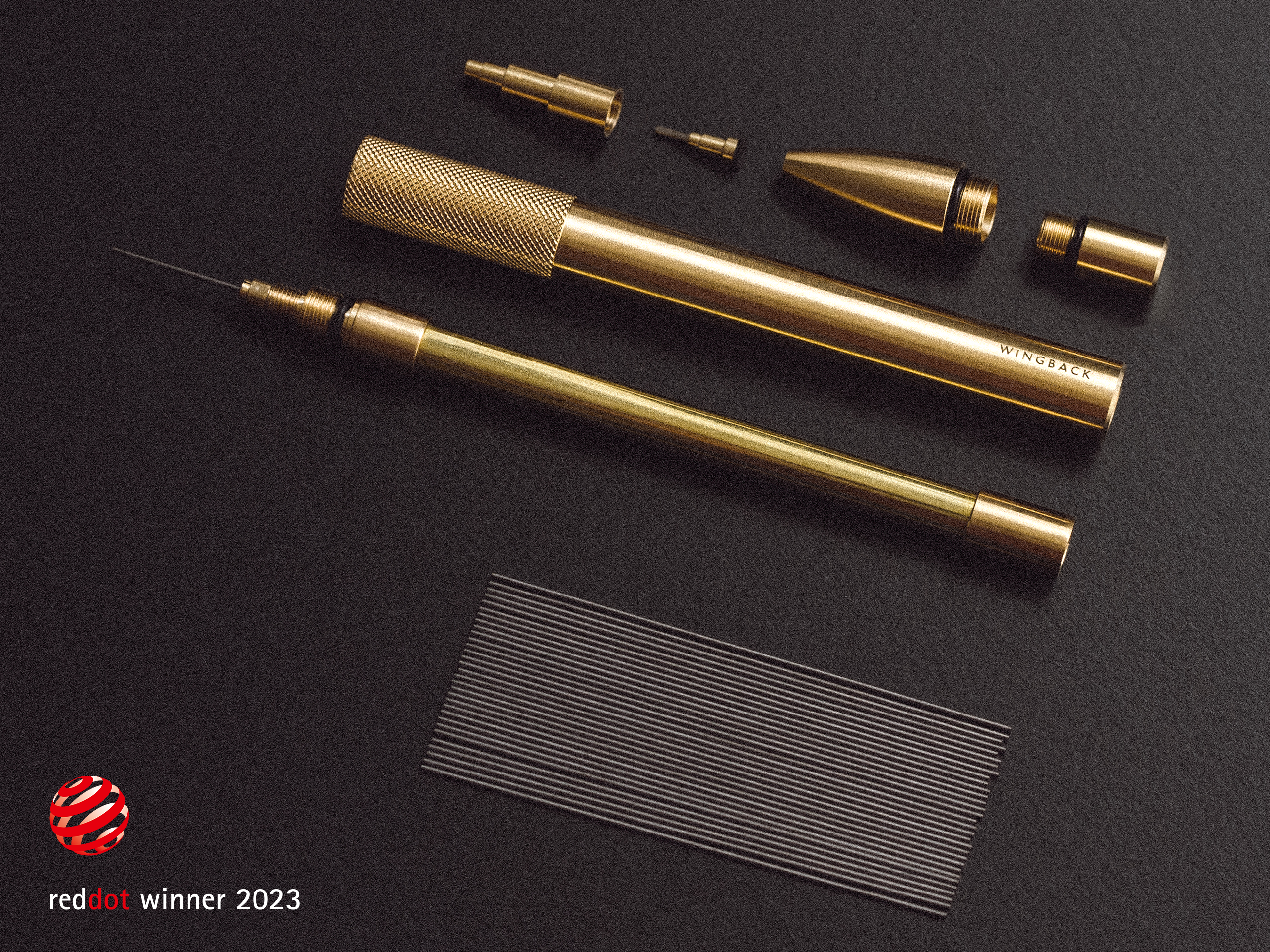
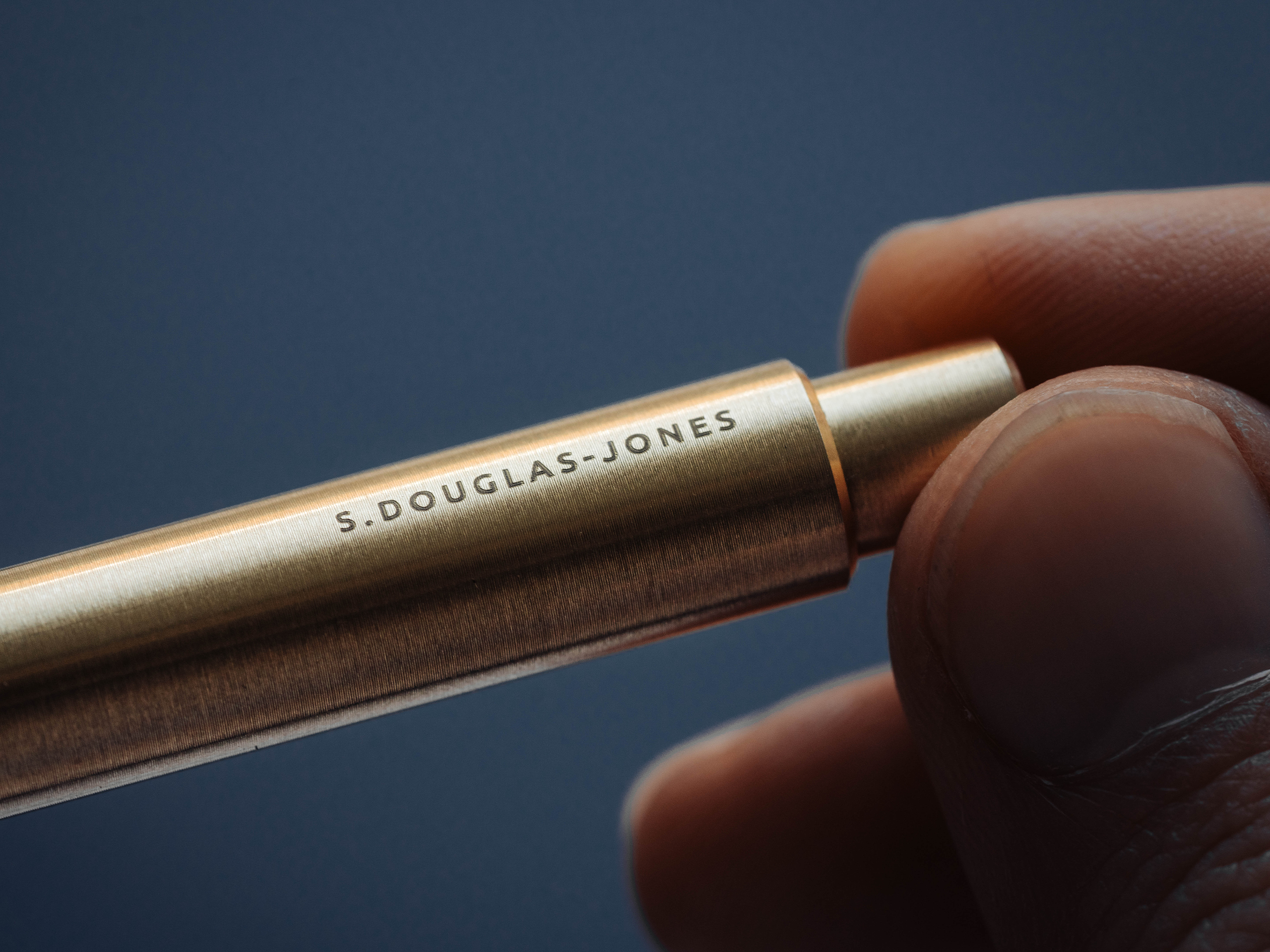
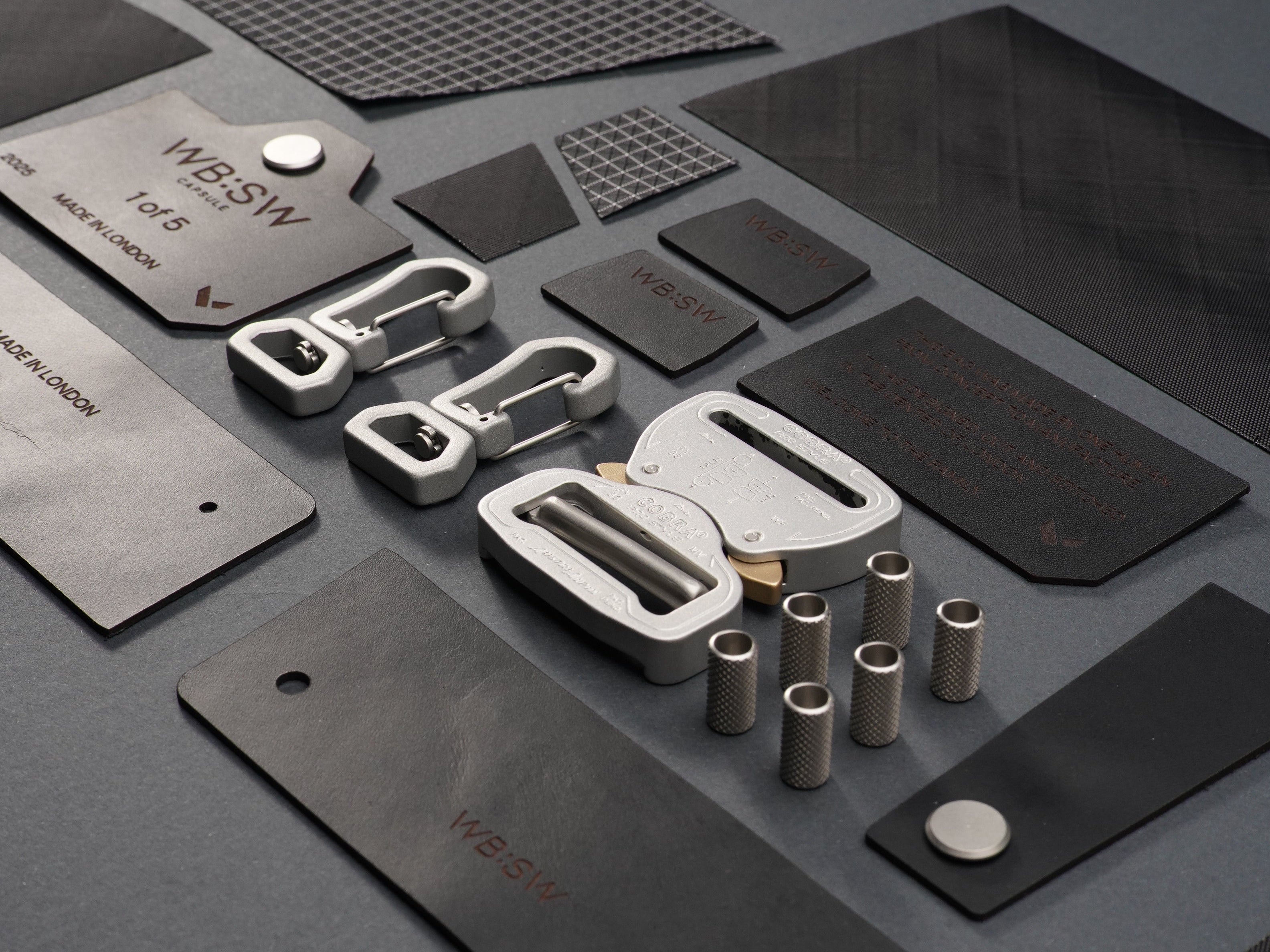
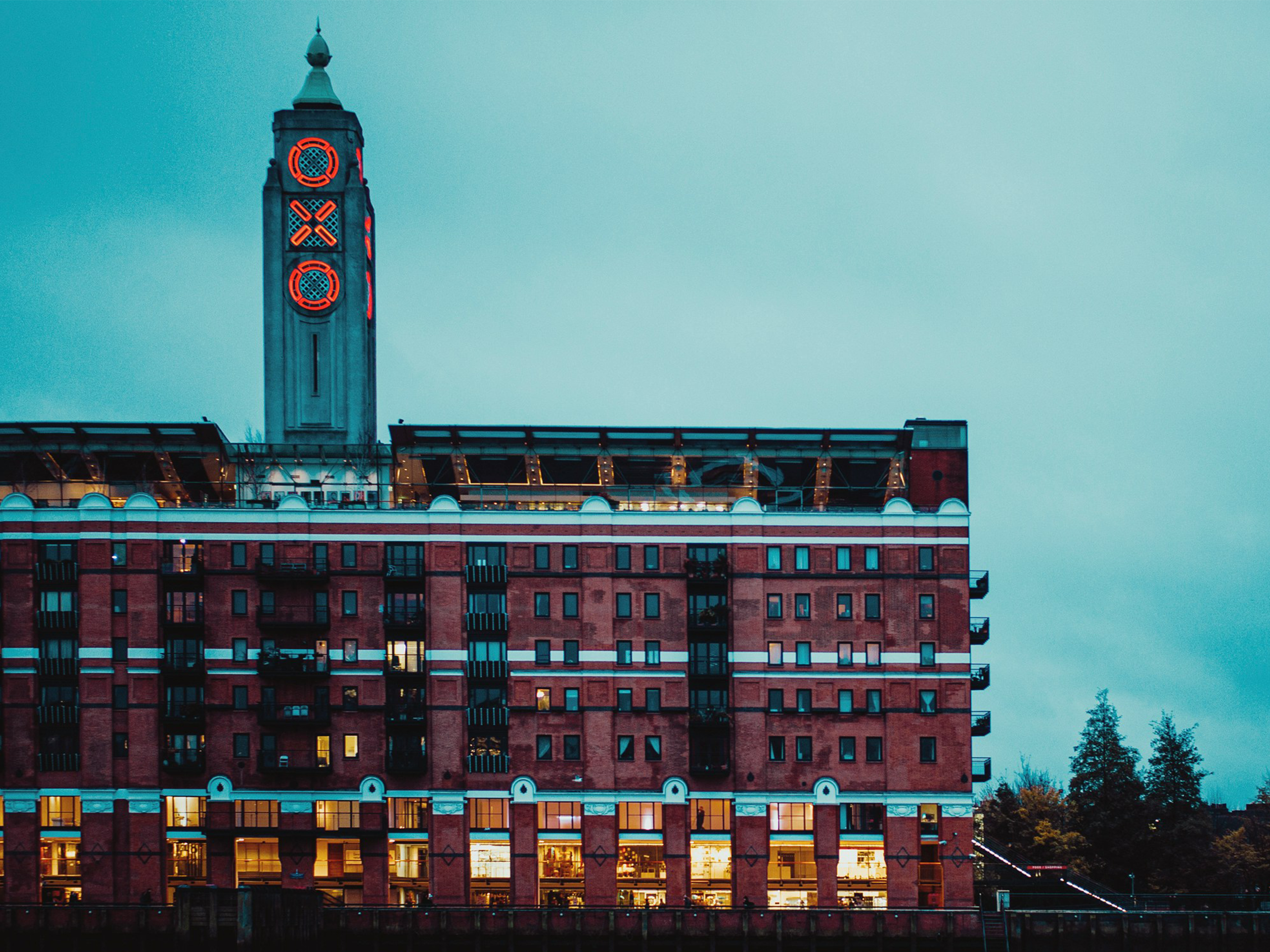

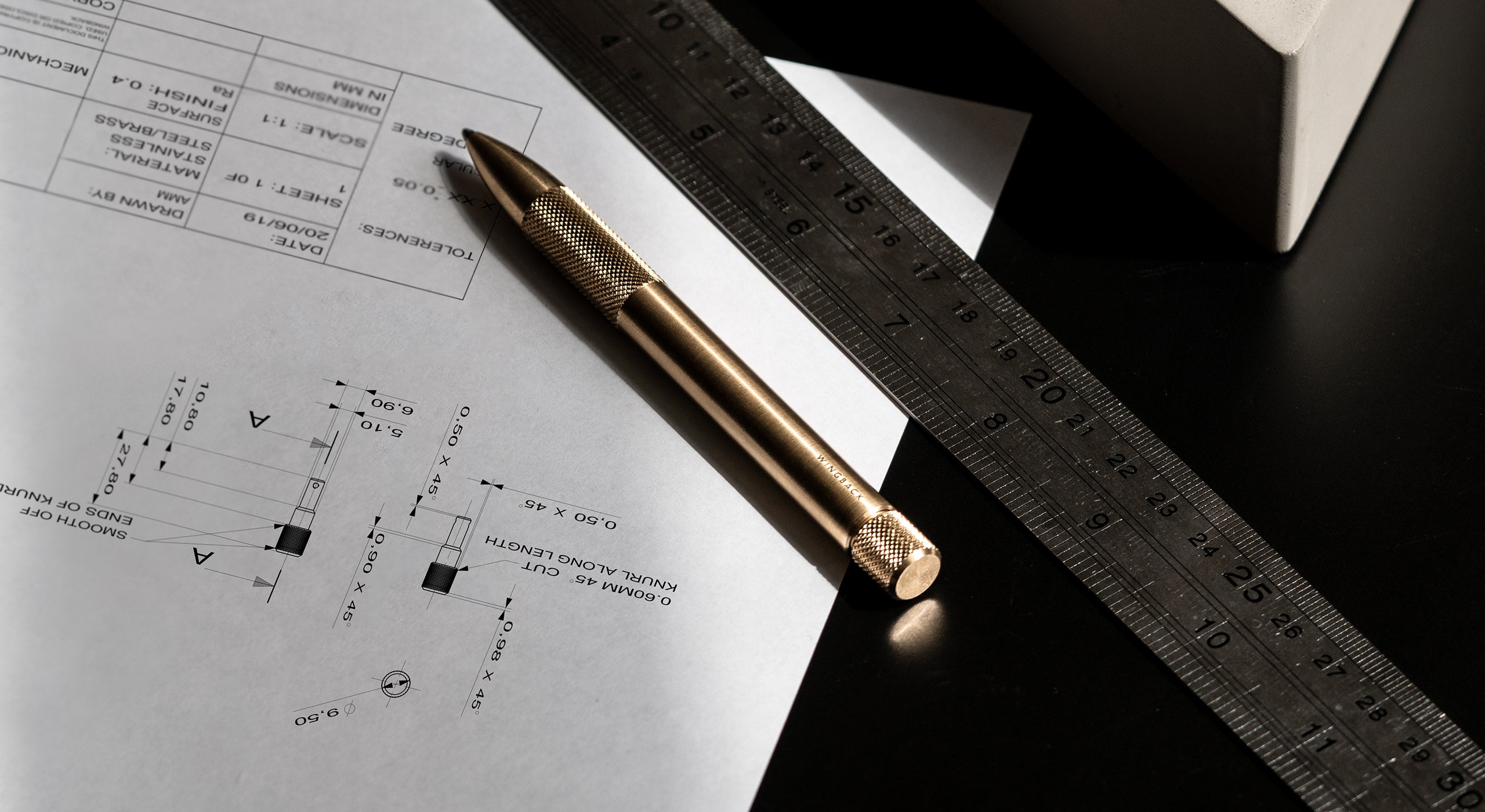
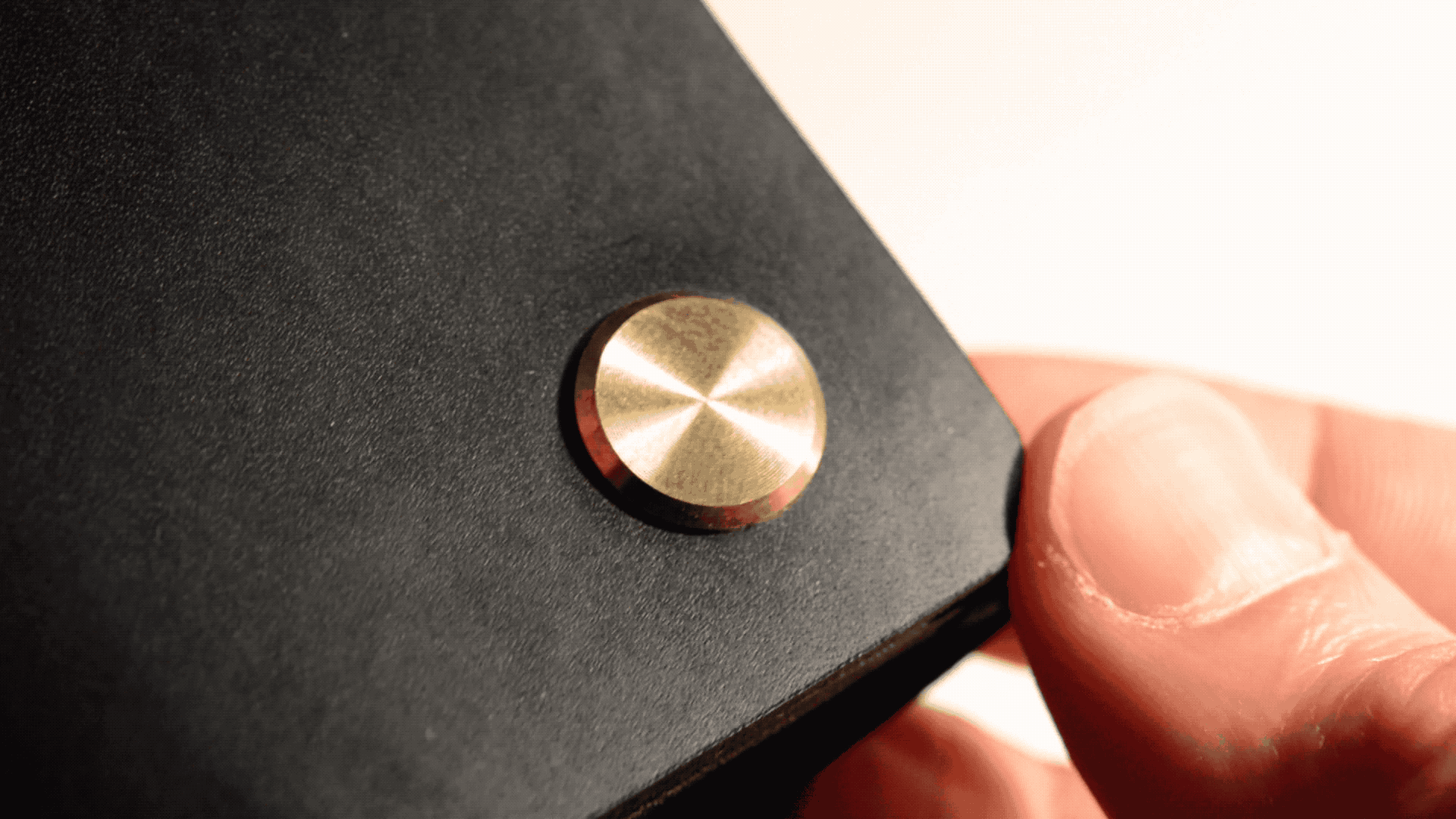
Leave a comment
This site is protected by hCaptcha and the hCaptcha Privacy Policy and Terms of Service apply.